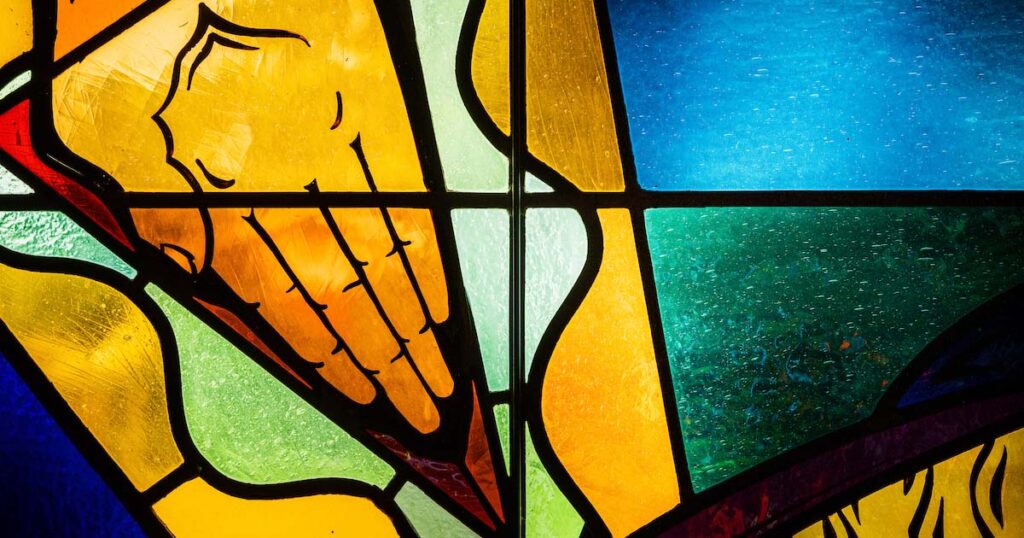The woke movement is not just about racial equity and inclusion. It wants to alter the social and political landscape of America (and elsewhere). That is, there’s a woke social agenda. Vox, a left-leaning online news site, describes woke as a “single-word summation of leftist political ideology.” Patrisse Cullors, one of the founders of Black Lives Matter (BLM), described herself and the leadership of the BLM organization as being informed by Marxism. Accordingly, the BLM organization was interested in more than alleged police brutality against black Americans. It was also intent on, as its website once advertised, disrupting what it called the “Western-prescribed nuclear family structure” and seeking to foster a “queer-affirming network … with the intention of freeing ourselves from … heteronormative thinking.”
This may be surprising, especially if you thought that BLM and the broader woke movement is centered around combating racial injustice. It’s not; it includes advocacy for a host of other trending social causes. LGBTQIA+ issues in particular stand out. This includes (but is by no means limited to) the normalization of homosexual marriage, the rejection of the nuclear family as an ideal pattern for society and the treatment of any sexual proclivity as natural and morally equal. The persistent push for transgenderism, which has recently been labeled by advocates as “Transgender Marxism,” is now attempting to soften the moral evil of pedophilia by describing people with such disorders as “minor-attracted persons.”
God’s order
All of this is perverse for any number of reasons, but especially because it clearly rejects God’s intended order. Jesus taught that from the very “beginning of creation, ‘God made them male and female.’ ‘Therefore a man shall leave his father and mother and hold fast to his wife, and the two shall become one flesh.’ So they are no longer two but one flesh. What therefore God has joined together, let not man separate” (Mark 10:6–9). Elsewhere, the Scriptures speak specifically and clearly about homosexuality, sex outside of marriage and so on. St. Paul describes homosexuality as dishonorable and unnatural (Rom. 1:26–27), and he equally condemns any manner of sexual immorality, whether hetero or homosexual (1 Cor. 6:9–10; 1 Tim. 1:9–10).
Marriage, nuclear families and a male-female binary are woven into creation; that is, they are natural. But making an argument from nature is always limited and not easily proven. There are numerous exceptions and aberrations over the course of human history, and we always bring prior (worldview and/or theological) commitments to our interpretation of historical and empirical reality. Moreover, human beings are fallen creatures; all of creation has been affected by the fall. Nevertheless, that God’s intended order has more or less been a permanent feature across human civilizations testifies to its naturalness.
Marriage, nuclear families and a male-female binary are woven into creation; that is, they are natural.
The woke worldview disagrees with the notion of an objective natural moral and social order. It treats social institutions, and how we define such institutions as marriage and family, and even our personal identities — think gender and sexuality — as constructs. That is, societies created them and they may have served a purpose in the past, but they no longer provide a natural and thus immutable good for society, woke thinking presumes. Everything defined as a good in society — from the standards that inform social relations to what we define as a moral good — is essentially made up or constructed by society.
Social constructivism
This belief, called social constructivism, is a form of relativism. It is the rock bottom foundation of the woke worldview. It does not ask whether or not an objective world really exists; rather, it denies we can know the world, its nature and intended order, or its purpose in any objective way. It is indifferent to God’s revelation in Scripture. And while it may acknowledge the power of reason, it quickly asserts that bias, prejudice, will and other factors are equally powerful. Our knowledge, then, isn’t knowledge in the objective sense. Rather, the thinking, bias and priorities of cultures past and present have shaped that knowledge. All our claims of knowledge, goodness or truthfulness are biased and, therefore, oppressive to those who do not conform to the culture’s standards.
The woke worldview demands activism and advocacy. If you don’t advocate for the woke agenda, you are complicity in transphobia, homophobia and all the rest.
Paul Boghossian uses an innocuous example in his masterful critique of the social constructivist philosophy, Fear of Knowledge. In a constructivist view, archaeological and scientific explanations of how the first people got to the Americas from Asia by way of the Bering Strait are as true as the account the Cheyenne River Sioux give — that they are descendants of the Buffalo people who came from inside the earth once supernatural spirits had prepared the world above for human occupation. Both accounts could be wrong. The former, however, has the most explanatory power from all the available evidence. In constructivist reason, however, to suggest this privileges that interpretation and the culture that gave birth to the notion that evidence should factor into how we describe the world. It also marginalizes the other view. Both are, in the constructivist account, equally valid.[1]
This type of thinking guided the redefinition of marriage over the last decade. Insisting on a biblical definition or one shaped by an almost universal historical experience, it is argued, marginalizes other domestic sexual relationships. As such, they are oppressive. We are seeing similar logic being applied to contemporary discourse on sex and gender. Sex is biological. While sex may be determined by one’s chromosomes, there is more to a person’s identity. A person also has a gender, and gender and sex may not match. The use of the term gender in this context is defined as the way someone presents himself or herself. Being transgender means that a biological male may, for whatever reason, present himself as a female — or any number of other types drawn from an ever-expanding list. He might dress as a woman normally dresses. Others take it to the extreme and chemically and surgically alter their body to match whatever gender they desire.
To be concerned with or critique any aspect of this (even to merely advocate for the outlawing of the surgical mutilation of minors) is regarded by social constructivists as hateful transphobia. Since transgendered people are more prone to suicide, activists also claim that failure to support gender-affirming practices (use of pronouns, sex-reassignment surgery, etc.) amounts to transgenocide.
Activism required
As in the case of the cause for racial equity, woke activists seek radical social equity — where all manners of living and ever novel understandings of social relations are viewed and treated as equal. Otherwise, you are on the side of oppression even if you are not involved. The woke worldview demands activism and advocacy. If you don’t advocate for the woke agenda, you are complicit in transphobia, homophobia and all the rest. Silence, as the slogan goes, is violence. This worldview follows what Karl Marx said about the nature of philosophy: Philosophy is not about trying to understand and interpret the world as it is. Rather, it is about changing the world.
And how best to change it? As Marx said, they seek to change the world through ruthless criticism and disruption. Later works, especially French postmodern thinkers like Jacques Derrida and especially Michel Foucault, took Marx to his natural conclusion and ended in the deconstruction of other worldviews, institutions and hierarchies. This is not to say that wokeism is exactly Marxist or postmodernist, but it certainly shares many of the same assumptions about the world and what to do about it. And wokeism was certainly inspired by these two philosophies.
Ideologues and ideology
In the end, wokeism is not just a philosophy or a worldview but an ideology. It is a comprehensive worldview that sees past and present through the lens of oppressor and oppressed. Wherever there is inequality and a distinction between what is good, acceptable and bad (or what is holy and sinful), there is also marginalization, oppression and victimization. “Central to the ideological mentality is a demand to change the way the world is, so as to eliminate oppression, exploitation and inequality,” writes British philosopher Anthony O’Hear. “And the way to change the world is to foster anger and resentment not just among those who are, in the ideologist’s view, exploited, but also among others who may be appalled by the picture the ideologist paints, and so want to join the movement to change things.”
What sort of change does it envision? The woke ideologue can’t tell you; they are defined by opposition to the extant order. It’s assumed a new order will arise spontaneously where the oppressed victims of the old will be liberated, perhaps by a dictatorship of the woke. But the liberation of victims is a perpetual struggle. New victims are inherent in the system. As the last victims become included and normalized, they spawn the next generation of victims. In the end, despite woke striving for an inclusive society, it’s not a society in which anyone with a fixed theology or values (such as you and I) can be included as equals.
[1] Paul Boghossian, Fear of Knowledge: Against Relativism and Constructivism (New York: Oxford University Press, 2006), 1–6.
Photo: LCMS Communications/Erik M. Lunsford






Thank you for a good article on some of the aspects of WOKE. Note that it’s Dialectic strategy is designed using inaccurate terms and by depending upon slander to silence any opposition. As James Linsay has said it’s method in the takeover of institutions can be seen in the outlines of Joseph Piper, “Abuse of Language abuse of power”, and the pdf “Women’s studies as a virus” by Breanne Fahs and Michael Karger. Look at it’s every term and claim for logic and evidence, the two pillars of construction enquiring dialog. In prayer.
Satanism, wokeism, they have a lot in common, don’t they?
I’m a recent foster care provider for my grandson. In my home we do not raise our voices, but have many conversations regarding trans issues. I appreciate your article. Pride “month” has opened his eyes to inequality for believers. It’s opened eyes and seeing clearly I pray.
So how can Christians best respond?
Someone asked, how can Christians respond to wokeism? The answer is by following the teachings of Christ and being woke. That is, being tolerant and respectful of those who are different, by loving one’s neighbor, by helping the poor and the immigrant and by being educated about and aware of social inequities and privileges.
You make some claims. Can you show what teachings of Jesus that you are referring to.
As for me.
WOKE is to be aware of injustices in race and economic standing. But one must use proper standards to decide and act. I grew up in a migrant labor camp, aka an agricultural getto. Always sensitive to injustices. I reject the WOKE dialetic of having to tear down all of society.
Could you show what teachings of Jesus that you are referring to?
I stand against injustices of all sort. And the WOKE movement is unjust.
MAKE TEACHING BIOLOGY GREAT AGAIN.
Woke activisiom needs to be actively resisted in every way possible. Not to do is going to lead to the destruction of live as we know it both secular society and among God’s people. A plan to do so is overdue now.
Thank you, Dr. Adam S. Francisco, for your stirring article.
Thank you Dr. Francisco for addressing this very important issue of the day. Your article is a thorough introduction as to why wokeism is incompatible with Christianity. I wonder if James Lindsay’s thinking that wokeism is repackaged gnosticism is worth pursuing: our bodies and the physical world entrap us and we need to “free ourselves” from the natural order in favor of a metaphysical “social construct”? There is nothing new under the sun, Ecclesiastes 1:9, so a repackaging of an age-old heresy makes sense to me and gives clarity on how to respond.
Extremely well written and perfectly insightful.